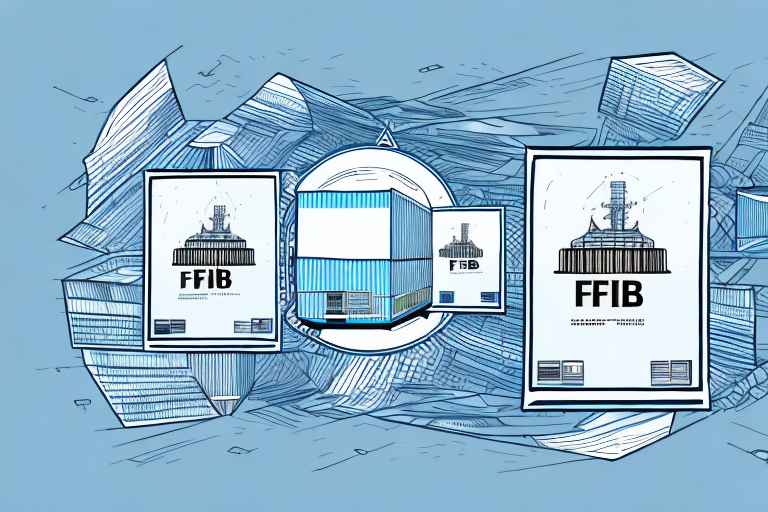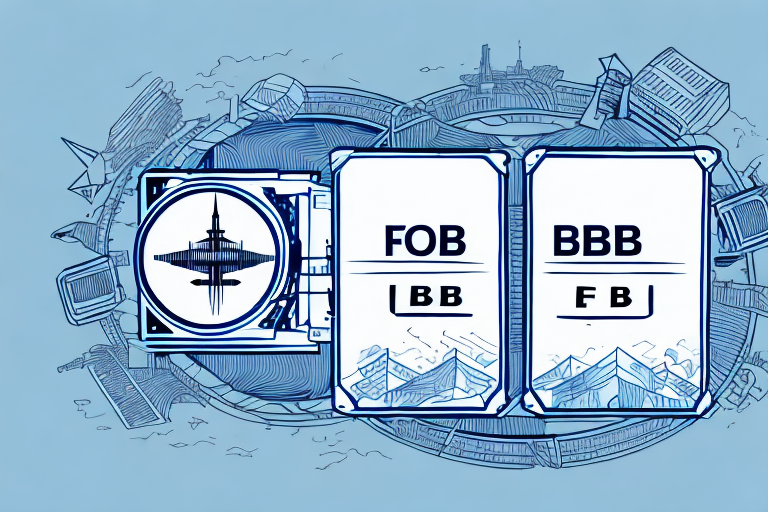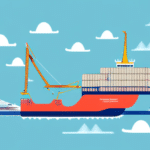Understanding FOB Destination in Shipping Logistics
If you are a business owner or logistics professional responsible for shipping goods domestically or internationally, you've likely encountered the term FOB Destination. Grasping the concept of FOB Destination is essential for ensuring smooth and reliable shipping logistics. This article delves into what FOB Destination entails, its significance in logistics, how it affects the title to goods during transit, key differences from FOB Origin, and more.
Defining FOB Destination
FOB Destination stands for "Free on Board Destination." In a FOB Destination shipping agreement, the seller retains ownership and responsibility for the goods until they are delivered to the buyer's specified location. This includes all associated costs, risks, and liabilities during the shipping process. Essentially, the seller is accountable for arranging and paying for the transportation of goods to the buyer's designated destination.
Importance of FOB Destination in Logistics
Understanding FOB Destination is crucial in logistics as it determines who bears responsibility for the goods while in transit. This knowledge is particularly vital for companies that regularly transport large volumes of goods, such as manufacturers, wholesalers, and retailers.
Under FOB Destination terms:
- The buyer assumes ownership and related costs only upon delivery at the specified destination.
- The buyer's risk of incurring additional expenses, such as transportation and insurance, is minimized.
- It ensures a clear delineation of responsibilities, reducing potential disputes between parties.
According to the Inbound Logistics, clear shipping terms like FOB Destination can significantly enhance supply chain efficiency and risk management.
FOB Destination vs. FOB Origin: Key Differences
While both FOB Destination and FOB Origin are prevalent shipping agreements, they differ fundamentally in responsibility allocation:
- FOB Origin: The buyer assumes ownership and control of the goods as soon as they leave the supplier's premises. Consequently, the buyer is responsible for all transportation costs, risks, and liabilities, including customs fees and insurance.
- FOB Destination: The seller retains control and responsibility until the goods reach the buyer's specified destination. The seller bears transportation risks, including potential loss or damage during transit.
Choosing between FOB Destination and FOB Origin impacts not only cost allocation but also risk management strategies within the supply chain.
Implications of FOB Destination on Title and Risk
Under FOB Destination terms, the title to the goods remains with the seller during transit. This arrangement has several implications:
- Risk Management: The seller is responsible for any loss or damage until the goods are delivered, incentivizing them to ensure safe transportation.
- Title Transfer: Ownership transfers to the buyer only upon delivery, affecting accounting, insurance, and legal considerations.
Understanding these implications is essential for both parties to manage their legal and financial responsibilities effectively.
Advantages and Disadvantages of FOB Destination
For Sellers
- Advantages:
- Enhanced control over the shipping process ensures goods are handled properly.
- Opportunity to build stronger relationships with shipping carriers.
- Disadvantages:
- Assumes all transportation risks until delivery, potentially increasing costs.
- Requires expertise in logistics management.
For Buyers
- Advantages:
- Reduced risk of incurring additional transportation costs.
- Less responsibility for managing shipping logistics.
- Disadvantages:
- Limited control over the transportation process, which could affect delivery timelines.
- Potential dependency on the seller's logistics capabilities.
Legal Considerations in FOB Destination Contracts
When drafting FOB Destination agreements, clarity and precision are paramount to avoid legal disputes. Key considerations include:
- Clear Contract Language: Explicitly define responsibilities, delivery locations, and handling requirements.
- Accurate Destination Details: Ensure the delivery location is precisely specified to prevent misunderstandings.
- Documentation: Properly prepare all necessary documents, such as invoices and bills of lading, to comply with legal standards.
Consulting with legal professionals to review contracts can further safeguard both parties' interests.
Risk Management Strategies for FOB Destination Shipments
Managing risks associated with FOB Destination shipments involves proactive strategies:
- Comprehensive Insurance: Ensure that goods are fully insured against potential damage or loss during transit.
- Reliable Shipping Partners: Collaborate with reputable carriers to minimize the likelihood of mishaps.
- Regular Tracking: Utilize tracking technologies to monitor shipments in real-time, allowing for swift responses to any issues.
Implementing these strategies can significantly mitigate risks, ensuring timely and safe delivery of goods.
Future Trends in FOB Destination Shipping
The logistics landscape is continually evolving, and several trends are poised to influence FOB Destination shipping agreements:
- Technological Advancements: Innovations in tracking, automation, and data analytics are enhancing supply chain transparency and efficiency.
- Sustainability Focus: Increasing emphasis on eco-friendly shipping practices may shape future FOB Destination terms.
- Global Trade Dynamics: Changes in international trade policies and tariffs can impact transportation responsibilities and costs.
Staying abreast of these trends enables businesses to adapt their shipping strategies proactively.
Conclusion
FOB Destination is a pivotal concept in the logistics industry, delineating the responsibilities and risks associated with shipping goods. By understanding the nuances of FOB Destination, comparing it with FOB Origin, and implementing effective risk management strategies, businesses can optimize their supply chain operations. As the industry evolves with technological advancements and shifting global dynamics, staying informed and adaptable will ensure continued success in shipping logistics.






















